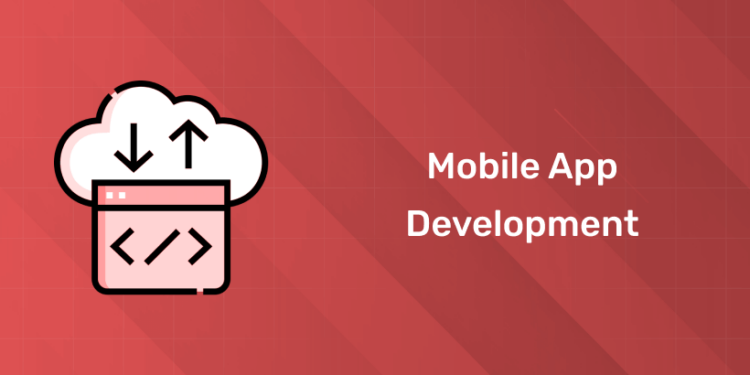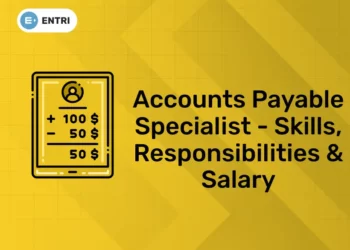Table of Contents
Mobile app development has become increasingly popular over the past decade, with revenue from mobile apps predicted to grow rapidly. The world of mobile app development isn’t slowing down anytime soon, so if you’re thinking about getting involved, now’s the time to get started! This article will tell you everything you need to know about getting into mobile app development, why it’s such a great market to be in right now, and what you can do to help your business succeed in this industry.
Mobile App Development in 2024
Mobile app development in 2024 continues to evolve rapidly, driven by advancements in technology, user expectations, and emerging trends.
Key Technologies and Platforms
- Cross-Platform Development:
- Flutter: Google’s open-source framework for building natively compiled applications for mobile, web, and desktop from a single codebase remains popular.
- React Native: Facebook’s framework allows developers to build mobile apps using JavaScript and React, and it continues to be widely adopted for its efficiency and community support.
- Native Development:
- Swift: The preferred language for iOS development due to its performance and strong integration with Apple’s ecosystem.
- Kotlin: The preferred language for Android development, offering modern features and strong interoperability with Java.
- Hybrid Development:
- Progressive Web Apps (PWAs): PWAs continue to blur the lines between web and mobile apps, providing app-like experiences within browsers.
Smartphones Are Everywhere
When you think about it, it makes sense. Smartphones are integrated into our lives in a way that’s almost intimate. We take them with us wherever we go, they track and record what we do, they can provide information on demand – and these are just some of their most obvious functions. But even when you think you’ve taken full advantage of your smartphone’s abilities, there’s likely more out there for you to discover. In fact, research shows that we use only 20% of mobile apps daily; how much better could our lives be if we used all that technology? Unfortunately, many people don’t know where to start or find getting started overwhelming. What does it mean to create an app? Who pays for development? How do I find developers? Where do I learn how to code so I can write my own app from scratch?! The good news is: All these questions have answers! Mobile app development has opened up opportunities across multiple industries that were once impossible due to technological limitations; now we just need people who will help explore those opportunities for themselves!
The Internet of Things (IoT) Is Here
IoT devices already exist in many parts of our lives, from home thermostats to wearable activity trackers. As these devices grow more advanced and more prevalent, they will be able to communicate with each other more easily and in more innovative ways. That connectivity will open up new possibilities for mobile app developers: for example, Apple’s HomeKit allows homeowners to control all of their smart devices using just their iPhone. That kind of functionality is a glimpse into what IoT might look like over time—and an exciting challenge for mobile app developers who want to get in on the ground floor before everything is locked down by proprietary software.
Big Data
One of, if not THE most hyped and buzzworthy trends in technology right now is big data. Big data refers to both a type of computing (in which massive datasets are stored, accessed, managed, and analyzed) as well as an industry trend that’s predicted to continue to boom. Companies are clamoring for more and more access to information about their customers, their employees, and any other demographic that might impact revenue. And what better way than from a big-data platform? It isn’t enough to know who your consumers are today; you need to know who they will be tomorrow so you can tailor your business strategies accordingly.
AI and Machine Learning
Artificial intelligence and machine learning have been two of the hottest trends in technology for more than a decade, but now we’re finally reaching a point where they’re poised to deliver real results. The capabilities of AI are becoming increasingly broad and useful—and businesses that invest today in developing their own skills will reap huge rewards in just a few years. Artificial intelligence is already changing how we shop, interact with our finances, and even stay entertained, so it stands to reason that app developers have begun incorporating these concepts into their designs. AI-driven personalization enhances user experience by providing tailored content and recommendations. Moreover, AI powers automation features like chatbots, voice recognition, and predictive analytics within apps.
Augmented Reality (AR) – Virtual Reality (VR)
Augmented reality is new and cutting edge. It’s something everyone has heard of but not too many people know much about. For example, you may have heard that Microsoft is making HoloLens glasses, but how do they work? AR is a technology that enhances or adds to our reality using computer-generated graphics, sounds, and other sensory input. A common misconception with augmented reality is that it can be used interchangeably with virtual reality. This isn’t true because virtual reality replaces your real world with computer-generated images and sounds whereas augmented reality enhances your current experience using an overlay of these elements on top of what you see in real life.
5G Wireless Technology
On May 16, 2017, Nokia and Qualcomm announced they were working together to bring 5G wireless technology to consumers in 2019. The 5G part of 5G wireless is a marketing term used by most companies involved with its development. 5G isn’t any faster than 4G or 3G; it’s just faster than previous generations of cellular data service because new technological standards have been set that allows for more antennas to be installed in smaller spaces, meaning more people can access faster internet connections simultaneously at high speeds than ever before. Many companies have promised that their networks will support gigabit speeds (1,000 megabits per second), but few have offered hard evidence outside of theoretical models. If you are interested to learn new coding skills, the Entri App will help you to acquire them very easily. Entri App is following a structural study plan so that the students can learn very easily. If you don’t have a coding background, it won’t be any problem. You can download the Entri App from the google play store and enroll in your favorite course.
Development Best Practices
- Security:
- Data Protection: Emphasizing encryption, secure APIs, and adherence to privacy regulations (e.g., GDPR, CCPA).
- Authentication: Implementing robust authentication methods such as biometrics and multi-factor authentication (MFA).
- Performance Optimization:
- Efficiency: Optimizing apps for performance, reducing load times, and ensuring smooth user experiences.
- Battery and Memory Management: Ensuring apps are optimized to minimize battery drain and memory usage.
- User Experience (UX) Design:
- Intuitive Interfaces: Prioritizing user-centric design, intuitive navigation, and accessibility.
- Responsive Design: Ensuring apps work seamlessly across various devices and screen sizes.
Tools and Frameworks
- Development Environments:
- Android Studio: The official IDE for Android development, offering robust tools and emulators.
- Xcode: Apple’s IDE for iOS development, providing comprehensive tools for building and debugging apps.
- CI/CD and DevOps:
- Automation: Utilizing CI/CD pipelines and DevOps practices to streamline development, testing, and deployment processes.
- Tools: Jenkins, GitLab CI, Bitrise, and Fastlane for continuous integration and delivery.
Market Trends
- Subscription Models:
- Monetization: Increasing adoption of subscription-based monetization models over one-time purchases or ad-supported models.
- Wearable Technology:
- Integration: Developing apps that integrate seamlessly with wearable devices, providing enhanced functionality and convenience.
- Sustainability:
- Green Apps: Developing apps with a focus on sustainability, including efficient resource usage and promoting eco-friendly practices.












